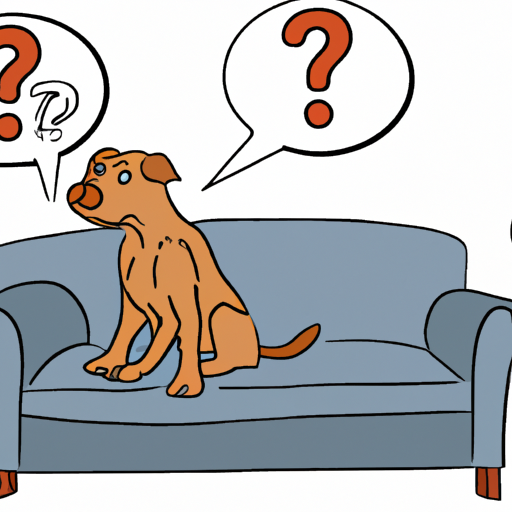Introduction
You come home from a long day at work, expecting a calm evening, but instead you’re greeted by the plaintive whining of your beloved canine companion. At first, you try to appease them with their favorite treat or a warm cuddle, but the whining continues. You might find yourself asking, “Why do dogs whine for no reason?”
1. Understanding Canine Communication
Dogs, just like humans, communicate through a variety of signals. Whining is one such form of vocal communication. They aren’t whining for ‘no reason’, even if the reason isn’t immediately evident to us. Sometimes, the cause of their distress might be physical discomfort, while at other times it could be emotional.
- Physical discomfort: Dogs often whine when they’re in pain or feeling unwell. Regular check-ups with the vet can help ensure your dog’s wellbeing.
- Emotional distress: Dogs are social creatures. They can experience emotions like anxiety, fear, or excitement which they express through vocalizations like whining.
2. Identifying the Source of the Whining
Determining why your dog is whining may require some investigation. Here’s a table to help identify the most common causes:
| Cause of Whining | Possible Indicators |
|---|---|
| Pain or discomfort | Limping, loss of appetite, lethargy |
| Anxiety or fear | Pacing, hiding, trembling |
| Attention-seeking | Whining while looking at you, pawing |
| Excitement | Whining when seeing their leash, food, or favorite toy |
3. Responding to Your Dog’s Whining
How you react to your dog’s whining can greatly influence their behavior. Remember, you’re their caregiver, their safe haven. Your responses should provide comfort and reassurance.
- Don’t ignore the whining: Consistently ignoring your dog’s whining might lead them to feel neglected or anxious.
- Do not reward the whining: While it’s important not to ignore the whining, it’s equally important not to reward it. If they’re whining for attention or a treat, don’t give in to their demands immediately.
- Redirect their attention: Distract them with a toy or a task like ‘sit’ or ‘stay’. Reward them when they stop whining and follow your instructions.
4. When to Seek Professional Help
If you’re unable to identify the cause of your dog’s whining or if the whining persists despite your best efforts, it may be time to consult a professional. This could be a veterinarian or a certified dog behaviorist. They can help identify any underlying medical issues or behavioral problems and guide you on the best course of action.
FAQs
Q: My dog seems to whine for no apparent reason, should I be worried?
A: It’s important to investigate any unexplained whining. If your dog appears healthy and happy otherwise, they might be seeking attention or expressing excitement.
Q: Can I train my dog to stop whining?
A: Yes, dogs can be trained to stop or reduce whining. However, it’s essential to first identify the cause of the whining.
Q: How can I tell if my dog is whining due to pain?
A: Other signs of pain might accompany whining, such as limping, loss of appetite, or lethargy. If you suspect your dog is in pain, consult a vet immediately.
Q: What should I do if my dog keeps whining at night?
A: Your dog might be feeling anxious or scared. Try creating a safe and comfortable sleeping environment. If the whining persists, consult a professional.
Remember, your dog relies on you for their wellbeing. Understanding and responding to their whining not only improves their quality of life but also strengthens your bond with them.



